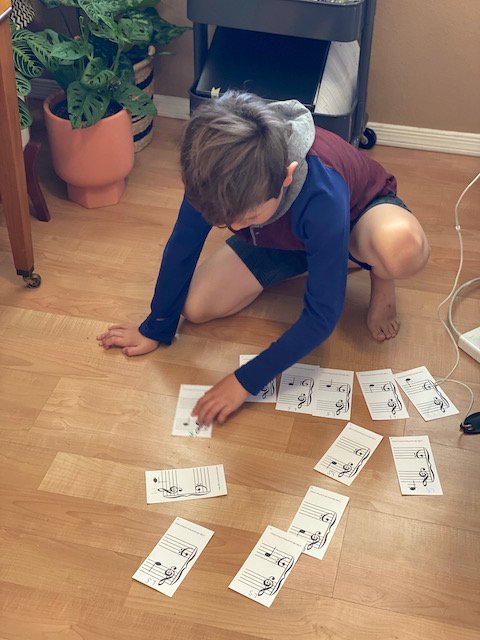
Piano lessons should not be limited to the fine art of playing the piano.
At their best, music lessons can not only develop one’s individual musicianship, but can also provide a place where good work habits, problem-solving skills, creative thinking and personal expression can be encouraged and nurtured. Because making music should be a natural extension of who we are and not something limited to a few gifted people, I believe in teaching the practice of becoming a musician, as much as teaching the techniques of learning to be a pianist.
Studio Calendar
Studio Photo Gallery
Lessons &
Workshops
Individual Lessons
Individual lessons are 45 minutes or 60 minutes in length.
Coaching
In addition to traditional piano lessons, coaching sessions for musicians of all kinds—singers, instrumentalists, music teachers, and pianists—on issues such as practicing and performance techniques, pedagogy, musicianship, improvisation and creativity are available. These lessons are generally an hour in length and are scheduled as needed.
New Students
Prospective students should schedule an interview/trial lesson. A parent is required to be present for this session.
Studio Classes
Studio classes take place 3-4 times per semester. In these classes, students learn performance etiquette, music theory and history, participate in rhythmic and movement activities, and perform for their peers.
Recitals and Other Performances
There is one formal studio recital every semester. There are also opportunities for students to participate in competitions and contests at various levels.
Workshops
Workshops for teachers and musicians are available in a variety of formats, from webinars or conference presentations to weekend workshops or even extended residencies. Topics range from the psychology of performance and practicing, pedagogical issues in the piano lesson, fostering creativity in students and teaching, rhythm and movement activities in the studio, and the development of musical and pedagogical priorities. Schedule allowing, recitals and/or master classes can be offered in conjunction with various workshops.
Rates
45-minute lessons: $910/semester or $182/month x 5 payments (tax included).
60-minute lessons: $1137.50/semester or $227.50/month x 5 payments.
A studio fee of $25 is charged annually.
Rate Details
The teaching year is divided into fall semester (mid-August through mid-December) and spring semester (mid-January through mid-May). There is also shorter (8-weeks) summer session in June and July.
In the fall and spring, tuition is billed by the semester, based on a fourteen 45-minute lessons, one 30-minute small group and three studio classes.
Payments can be made either in total at the beginning of the semester, or divided into five equal payments that are due on the first lesson of the month. Payments received after the 10th of the month are subject to a $25 late fee. There is a 10% discount for families with two or more members taking lessons. Except in extreme circumstances, no credits or refunds will be given.
College and Adult Students
Lessons for adults are scheduled on an a la carte basis depending upon the student’s schedule and musical goals. Payment is required at each lesson.
60-minute lessons:
$75/lesson
A special rate for college students may be available.
Requirements
Make-Up Lessons
There are no regular make-up lessons offered for missed student lessons. If for some reason I must cancel a lesson, a make-up will always be given.
Summer Lessons
All students are required to take a minimum of five 60-minute lessons or six 45-minute lessons during the summer session in order to retain their spot in the studio for the fall semester.
Practice Requirements
Students are expected to practice at least five days per week. The amount of time will vary depending on the level of the student, but generally speaking, students should practice their entire assignment in every practice session. This usually translates to 20-30 minutes for first and second year students; 30-45 minutes for third and fourth year students; and 60 or more minutes for high school students.
Parental Involvement
Students make the most progress with parental encouragement and support. This can take a variety of forms, but regular (even daily!) reminders of practicing and sitting with smaller children while they practice is often a good idea. Parents are always invited and encouraged to stay for their child’s lessons.
Instrument Requirement
All students must have daily access to an acoustic, full-sized piano (upright or grand). Electronic keyboards may NOT be used as daily practice instruments.



